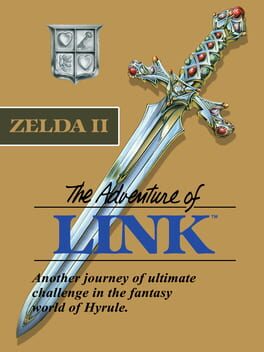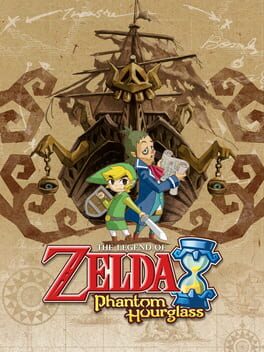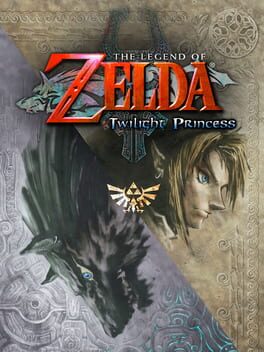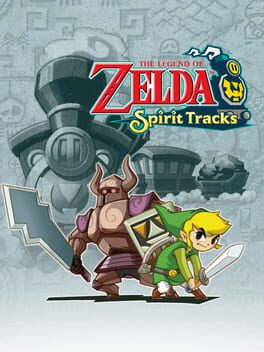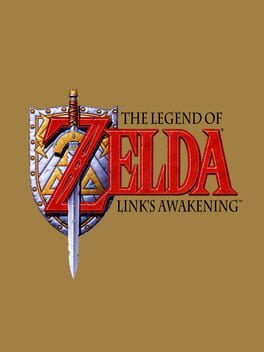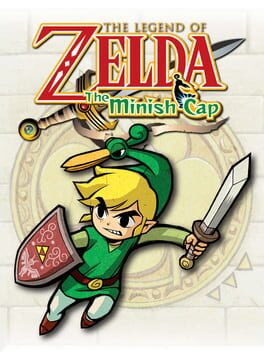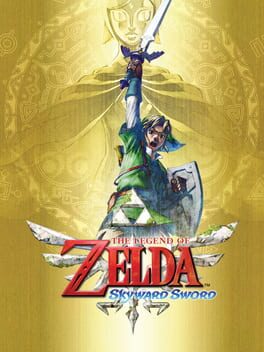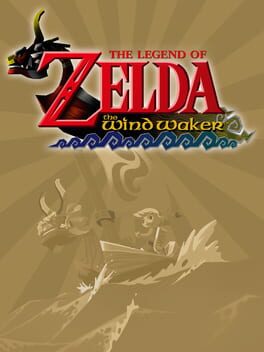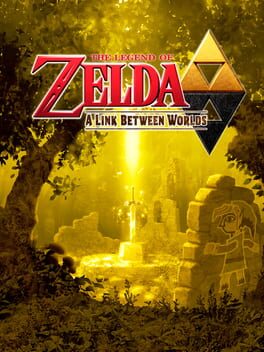What does my Zelda ranking look like now?
Sorry if this seems juvenile, but I haven't reevaluated this in a while, so I wanted to figure out - What does my Zelda ranking look like now?
I still haven't played enough of the Oracle games to feel comfortable ranking them. Otherwise, if there's omissions, it's probably because I don't consider them to be "real Zelda games", even if the Hyrule Historia would argue otherwise. I'm not unaware of Tri Force Heroes or Faces of Evil. Four Swords Adventures is a bit of a grey area, but until I've done a full four-player, GBA-linked playthrough, I'm not qualified to judge it.
I still haven't played enough of the Oracle games to feel comfortable ranking them. Otherwise, if there's omissions, it's probably because I don't consider them to be "real Zelda games", even if the Hyrule Historia would argue otherwise. I'm not unaware of Tri Force Heroes or Faces of Evil. Four Swords Adventures is a bit of a grey area, but until I've done a full four-player, GBA-linked playthrough, I'm not qualified to judge it.
15 Games
There's a lot of defenders for this, these days, but I still don't think it compares well against action games of the era. It's clunky and repetitive, and there's far too many random elements. Play a Wonder Boy game if you want a good version of this.
I caution those who dismiss Skyward Sword as the Zelda game designed around a control gimmick. I'd argue this one is. It often feels like a phone app, or one of those water toys where you press a button and Link floats up to the Triforce. A mild amusement, at best.
The big apology for Wind Waker, Nintendo went back to turn their Ocarina of Time Spaceworld demo into a real game, but make it bigger and badder to really win those American audiences over. The game feels stretched. Like Link is half the size he's supposed to be. Big, empty rooms with nothing to do until you reach the walls. I really struggle to remember the high points, and when I come back to them, they're not as good as I remembered.
Reworking Phantom Hourglass as a comedy handheld game was the right decision. Everything's a little more refined, and they're willing to get more whimsical. It's the dumb DS Zelda about trains, and not much more than that.
I think it gets far more credit than it's due, primarily because those who grew up with it played it under ideal conditions - knocking their heads against it over a period of months, and occasionally feeling the tremendous thrill of progress. There's just too much Game Boy in it for me. Threadbare dungeons that really push at your tolerance for tedium, and constant menu navigation. Lots of cute stuff, though. I really like Manbo.
Like GBA stablemate, Metroid Zero Mission, I think a lot of Minish Cap's appeal lies in its punchiness. You rarely feel overencumbered or held back by its pace. There just isn't all that much of anything, and I don't think the kinstone thing really adds up to much. Just another crack at making Majora's Mask's ideas of meaningful NPCs work again.
Really nosedived in my estimation upon a replay. It was the most Nintendo ever committed to the vision of the Wii, and I respect it for that, but it also really illustrated its limitations, too. Feels like they had to cut its development by a couple of years far too late in the project, when Nintendo were ready to close shop on the Wii, and they really struggled to bring it up to the intended length with the few environments they managed to piece together for launch day. There are moments, but there's far too many miserable playsessions between those.
I think this game feels excessive. To dip back into the Breath of the Wild pool after both the DLC and even Age of Calamity. I kind of wish they held off, but I can't blame them for doing it. They came up with something cool, and once you understand what the "Tears of the Kingdom" actually are, I think there's a really compelling idea for another Zelda game at the heart of this. I don't see myself recommending it to anybody in a decade's time, though.
There's a tendency to assume that Majora's Mask fans are quite shallow in their appreciation. This is the Zelda that puts cool imagery ahead of compelling structure. It IS cool, though. And there's a bunch of that late-90s Nintendo weirdness, too. They made the farm bigger, and you have to fight back against alien abductors. It's kind of all over the place, and there's a lot of bad and underwhelming stuff in here, but there's a lot of good things to come back for, too.
As a fan of the "Legend" side of the series, I think there's a real appeal to seeing the most prototypical, rudimentary example of its telling. The earliest civilisation who tried to recount this story. Zelda 1 doesn't feel very purposefully designed, and there's little to distinguish one part of the game from the next, but it's a fun little game that attempts and achieves a lot. It's cute that it hasn't really set itself apart from medieval fantasy tropes at this point, too. People were still calling Link an elf for a full decade afterwards.
One of the more uneven entries in the series. When sections were really cared for, and had a lot of attention piled on it, you really feel it. There's also parts of the game that feel like they snuck into the final code because nobody remembered to delete them. The GameCube needed a Zelda game, and it needed it right now. Sometimes quests lead to very underwhelming results. Sometimes, it feels like one of the most exciting games in the series.
It's corny and cute, and it works. Each dungeon feels like an exciting new level where you get to do something new. It's also where Zelda really put a lot of stock into its cast of NPCs, making each house and shop entertaining to explore and interact with. You owe the cuccos' revenge to ALttP. So much of what we love about Zelda comes from the energy and humour that created this game.
What's interesting about this, in a post-Breath of the Wild world, is how much of a bare-faced experiment it is. They're seeing how crucial pre-determined structure is to a Zelda game, and they're using one of the Zeldiest games in its history to base their findings on. That's not all that A Link Between Worlds does, though. It makes that version of Hyrule solid and tangible, without denying the straightforward appeal of 2D design. Quick, clever and brilliant.
Breath of the Wild showed us that all the ideas of Zelda could work in an entirely different form and still capture that appeal. It's maybe the game that feels the most like a big adventure. Maybe not always as gratifying or meaningful as we've come to expect, but personal. When all the right pieces line up, you stumble into something quite profound.
How fortunate they made the best Zelda game when they did. There was scepticism that 3D games even had the potential to be as good as what came before, and they just totally nailed it here, with the most emotionally rich and successfully inventive title in the series. It's served as the core of the franchise ever since, with each new game tying into the grander Legend through its connection to this entry. A game that feels it earns the inclusion of enormous, spiritual structures like The Temple of Time, and the most meaningful and soulful incorporation of music in any game Nintendo have put out. Every new area feels like a great example of what's so good about these games, with brilliant, charming and effortlessly memorable characters all written with that goofy, lovable, and earnest late-90s Japanese coming of age story tone. I don't know if it works as well for people who don't have such a deep appreciation for this specific era of games, but there isn't another Zelda game that comes close to how much I love Ocarina of Time.
